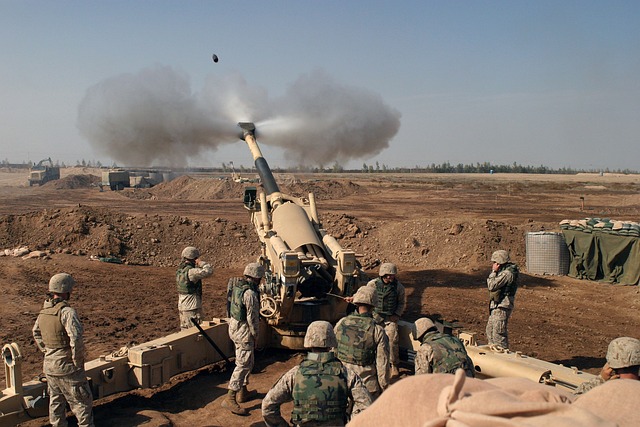Saddam Hussein, the leader of Iraq, invaded Kuwait, a neighboring country on the Persian Gulf, in 1990. He argued that as Kuwait had once been a part of Baghdad's domain during the Ottoman era, Baghdad should once again have sovereignty over it as the nineteenth province of Iraq. Actually, Baghdad had only served as the district capital for the Ottoman governor; Kuwait had been an independent sheikhdom under the Ottoman Empire. The Kuwaiti oil reserves were most likely Hussein's true motivation for invading, and he was determined to control a significant portion of the Middle Eastern oil market.
Previously, when Hussein fought war against Iran, the United States gave him access to their military generosity. Additionally, the United States informed Hussein that any "boundary disputes" in the Middle East were none of America's business when Iraq first complained about Kuwait's oil price practices.
But after the invasion, American President George Bush took the helm of a global alliance to stop Iraq from advancing farther and to reestablish Kuwait's freedom. Bush sent American forces and persuaded the UN to help him deal with Hussein in response to requests for assistance from other Arab nations, particularly Saudi Arabia. Armed friends from Europe sent soldiers to help.
Bush's motivations for Desert Shield and its follow-up, Operation Desert Storm, have received a lot of attention. Having a reliable Middle East oil supply was undoubtedly important for the United States and the rest of the globe. Bush, a veteran of World War II, saw Saddam Hussein as a modern-day Adolf Hitler who needed to be stopped rather than appeased. His resolve to fend off totalitarian invasion was further strengthened by reports of Iraqi cruelty in Kuwait. Additionally, Bush saw a chance for a "New World Order," where peace-loving nations would unite to defend sovereign borders against blatant expansionism, as communism was disintegrating in the Soviet Union and Eastern Europe. Bush received a stunning response on a global scale.
The coalition soldiers gathered at the Kuwaiti and Iraqi borders during the most of the second part of 1990. Hussein taunted the coalition to attack the border defenses as he began constructing a defensive line there rather than carrying out a preemptive strike. Schwarzkopf appeared to be planning to accomplish precisely that before planning a significant wheeling maneuver into the desert along the Iraqi right flank. Hussein was not persuaded to depart by economic pressure, so towards the end of December, President Bush gave Iraq until January 15 to withdraw from Kuwait. Due to failed last-minute negotiations, Schwarzkopf was instructed to change Desert Shield into Desert Storm.
The land battle ultimately started as a result of Hussein's continued defiance of international requests. Only 100 hours had passed when President Bush decided to end it. The performance of the Iraqi army was arguably the worst in all of military history. There are instances of soldiers giving themselves up to news reporters and drone surveillance vehicles. Tens of thousands surrendered and thousands perished; the coalition suffered less than 800 fatalities and injuries. The huge defenses that the Iraqis had spent months building were quickly outflanked and then simply breached when the defenders surrendered. Kuwait was liberated in a matter of hours.
The political administration of the emir in Kuwait saw some unhappiness among Kuwaitis who had stayed in the nation throughout the occupation and engaged in resistance activity. In response to their demands, there was some government representation by 1994. Because the Palestine Liberation Organization had backed Iraq, the huge resident population of Palestinians who had worked as laborers in Kuwait suffered persecution. Within a few months, nearly everyone had been expelled from the nation.

References:
Blackwell, James, Thunder in the Desert (New
York: Bantam Books, 1991); Friedman, Norman,
Desert Victory (Annapolis, MD: Naval Institute
Press, 1991); Woodward, Bob, The Commanders
(New York: Simon & Schuster, 1991).
Posted using Proof of Brain
